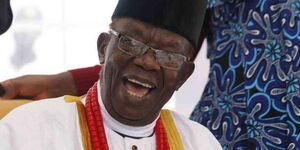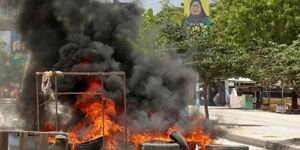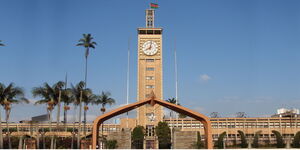Officers working in the Office of the Director of Public Prosecution are having it rough in their recent scrutiny of powerful graft suspects as they are under constant harassment in their line of duty as revealed by DPP Noordin Haji.
He was speaking during a meeting to update the religious leaders on the fight against corruption. In attendance were the DCI boss George Kinoti and Ethics and Anti-Corruption Commission (EACC) CEO Twalib Mbarak.
The prosecutions boss stated that unwarranted acts of violence and intimidation were being thrown at his officers who are probing the recent wave of corruption scandals.
“Officers prosecuting high-profile cases are being intimidated. They say they are being followed home, receiving phone calls and being tracked. Some of their homes are even being broken into,” Haji stated.
Case files of influential suspects have been disappearing making it an uphill task for the DPP's office to efficiently gather evidence and successfully arraign the offenders before any court of law.
Mr. Haji further divulged that the process of investigating graft cases against powerful people in the nation is usually long and could take up to two full years.
This is due to the nature of the cases which usually involve many individuals with some being foreigners in nations that are not willing to cooperate with the demands of the DPP in matters such as extradition.
“Investigations into these cases typically take six months to as long as two years. They often require the combined efforts of as many as 30 to 40 experts, ranging from detectives to prosecutors and forensic investigators,” Haji added.
A recent statement by governors that they should be spared ‘humiliating’ arrests did not augur well with the EACC boss. Mr Mbarak responded stating that corruption suspects would not be accorded any special treatment.
This statement by the governors came after Kiambu Governor Ferdinand Waititu was dragged out of his Runda house by the anti-corruption officers in the full glare of the media.












